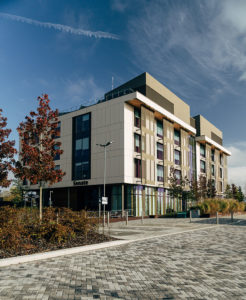Senior Lecturer - Dental
Faculty of Health, Education and Society
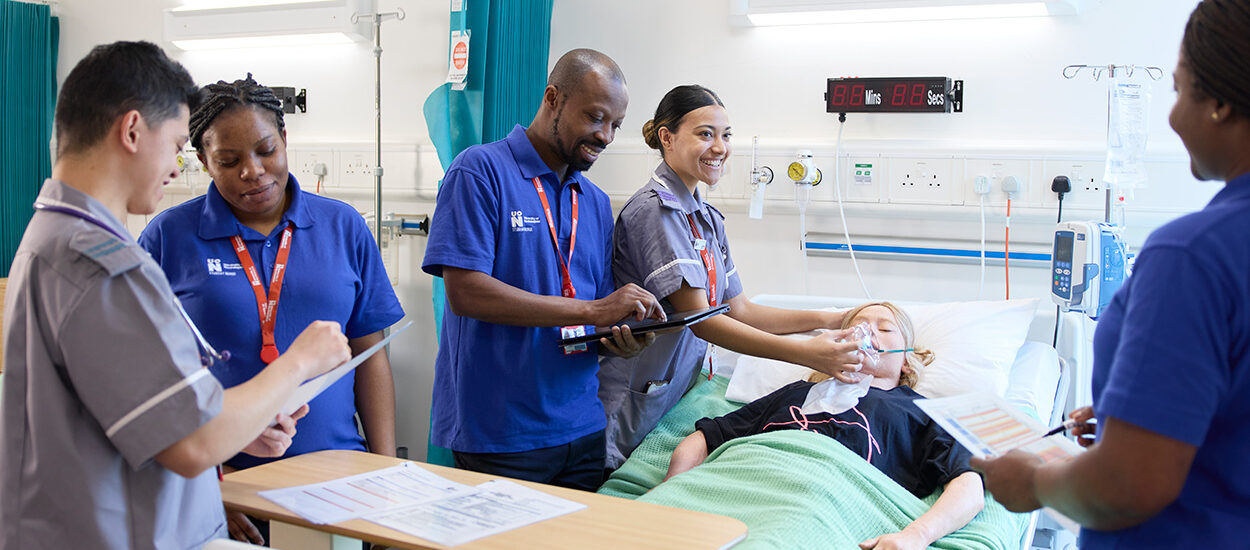
Adult Nursing BSc (Hons)
- Home
- Courses by subject
- Adult Nursing BSc (Hons)
Key Facts
-
UCAS Code
B700
-
Level
UndergraduateUG BSc (Hons)
-
Duration
3 years Full-time
-
Starting
September
-
BCC at A level
DMM at BTEC -
Full Time: £9,535
-
Full Time: £18,200
-
Waterside
Updated 15/04/2025
Updated 15/04/2025
Get in touch
For questions regarding study and admissions please contact us:
UK STUDENTS ENQUIRIES
study@northampton.ac.uk
0300 303 2772
INTERNATIONAL STUDENTS ENQUIRIES
The University of Northampton’s three-year Adult Nursing course will give you the ability to cope with a demanding and satisfying profession, leading to a BSc Adult Nursing degree and registration with the Nursing and Midwifery Council (NMC) allowing you to practice in accordance with the NHS Constitution which is underpinned by the core NHS values. The structure provides a strong foundation in adult nursing with skills based upon the theory taught at the University and clinical placements. Our nursing degree training will develop your care, compassion, courage, commitment and communication skills to work with adults in nursing.
Top 5 For General Nursing
The University of Northampton is a top 5 institution for general Nursing in the Best UK University Guardian League table for 2025.
Top 10 For Nursing & Midwifery
Our nursing and midwifery courses are joined top 10 in the Daily Mail University League table for 2025.
This Adult Nursing degree BSc has been approved by the Nursing and Midwifery Council (NMC). This means you can be confident that this nursing university programme meets the standards of education, training, conduct and performance required for nurses in the UK.
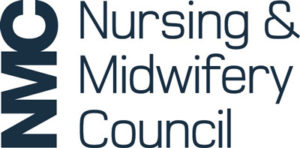
Highlights
- Leads to Nursing and Midwifery Council (NMC) registration.
- 50/50 split between theory practice learning.
- Mental Health First Aid (MHFA) delivered within this programme.
- You may be eligible for financial support through the NHS Learning Support Fund (NHS LSF)*
- Guaranteed paid internship with the Northampton Employment Promise.
- HP laptop and software included with this course for eligible students* (*see eligibility criteria and terms and conditions).
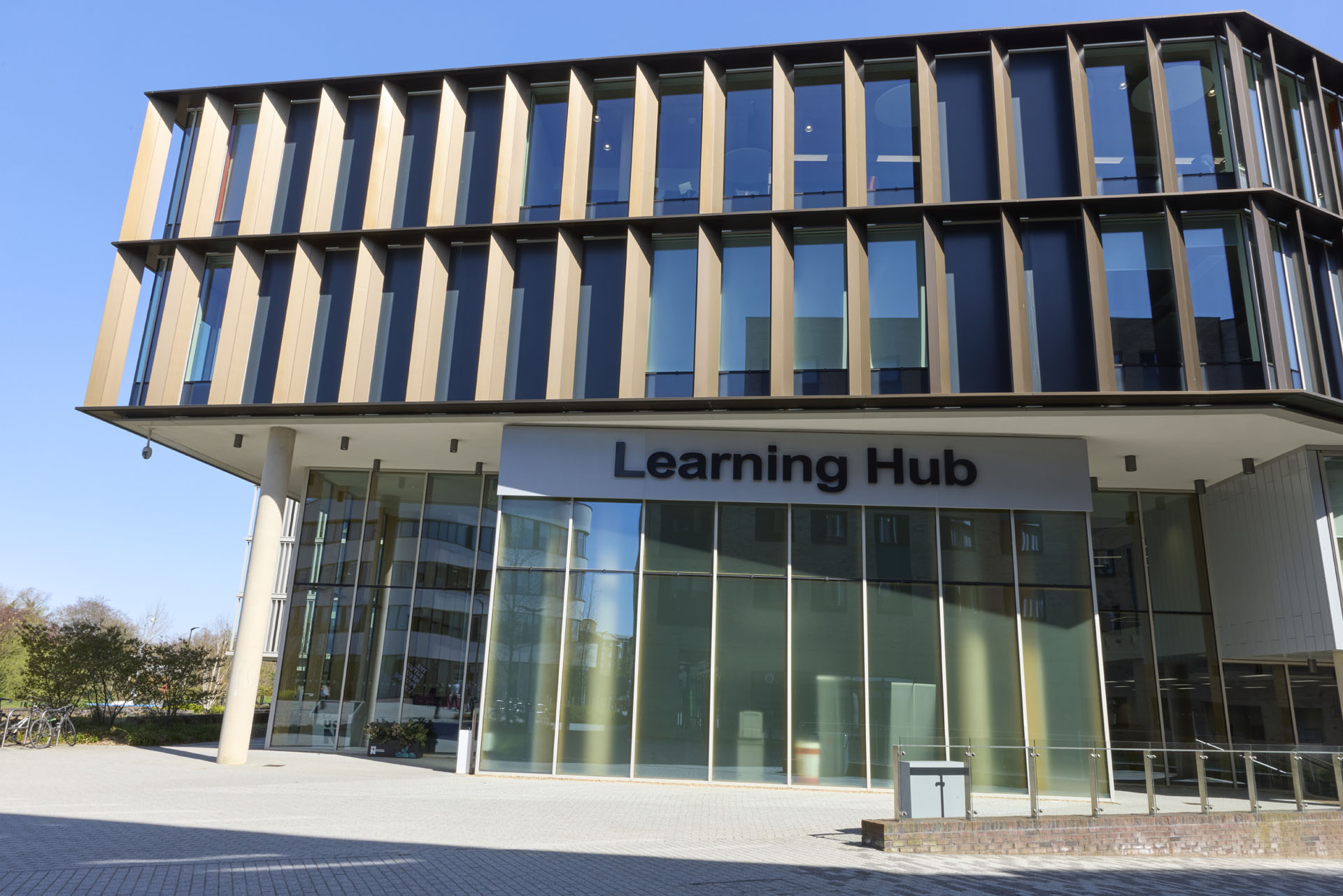
The Learning Hub is the biggest building on campus, home to our Student Information Desk, 24/7 library, teaching spaces, cafes, and more.
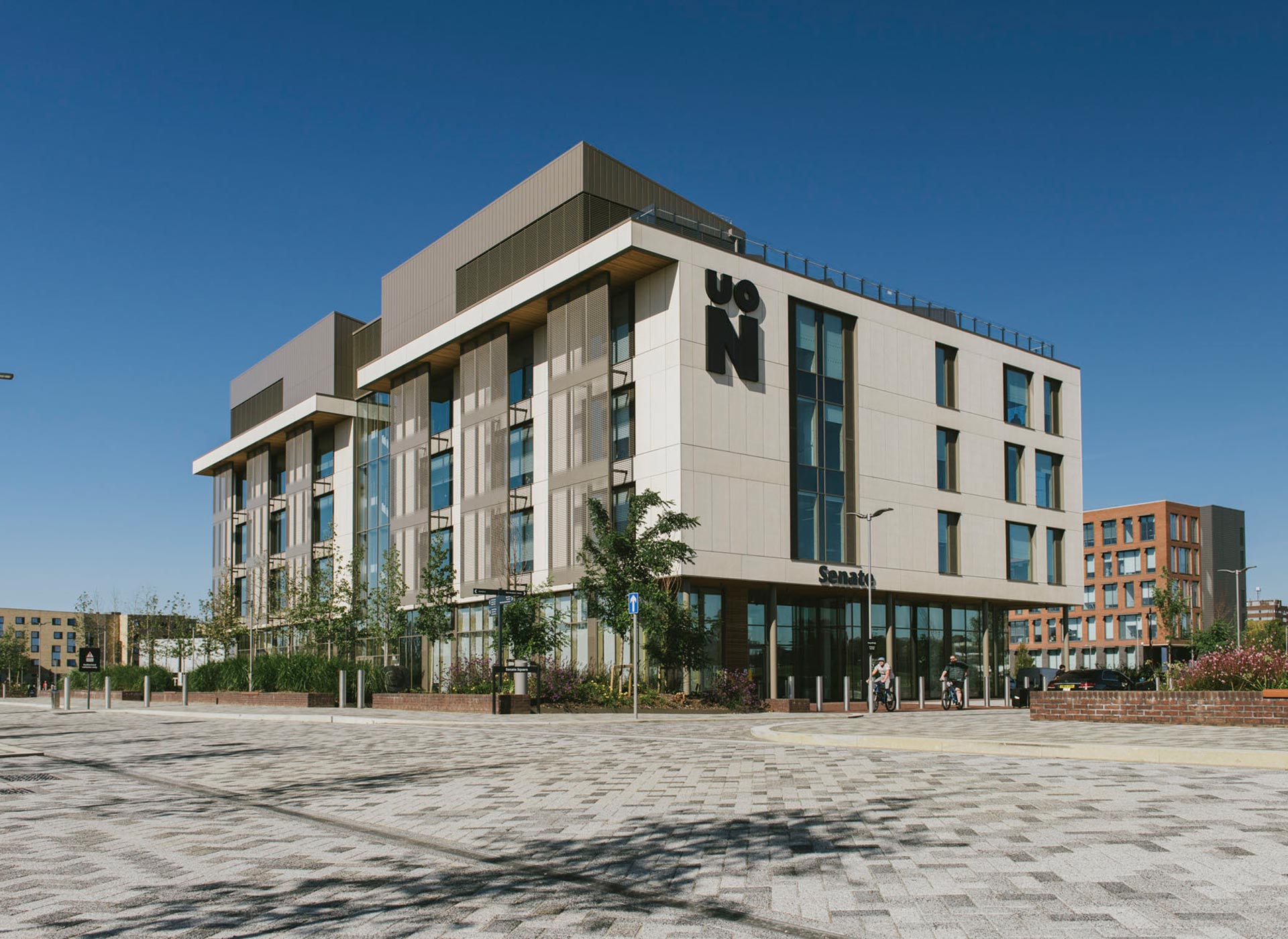
The big and spacious modern Senate building has various types of learning spaces, teaching rooms, our Bloomberg suite, Morley Room lecture hall, and cafes.
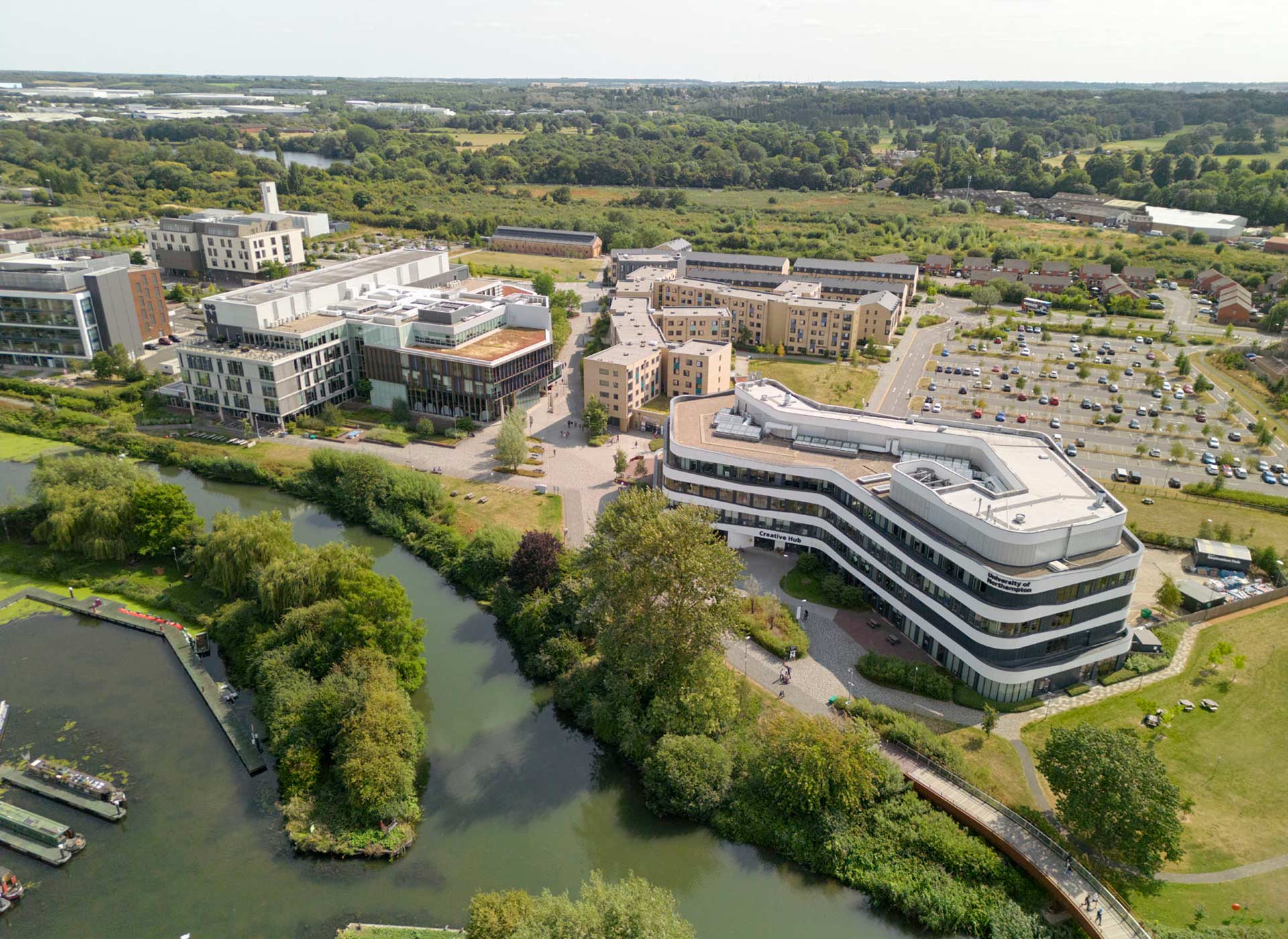
Waterside campus has everything students needs from: Learning Hub featuring 24/7 library, Creative Hub, on-site shop, restaurant, cafes and food outlets, multi-faith chaplaincy, student village hall, Students' Union and more. With only a short walk over the bridge into the town centre.
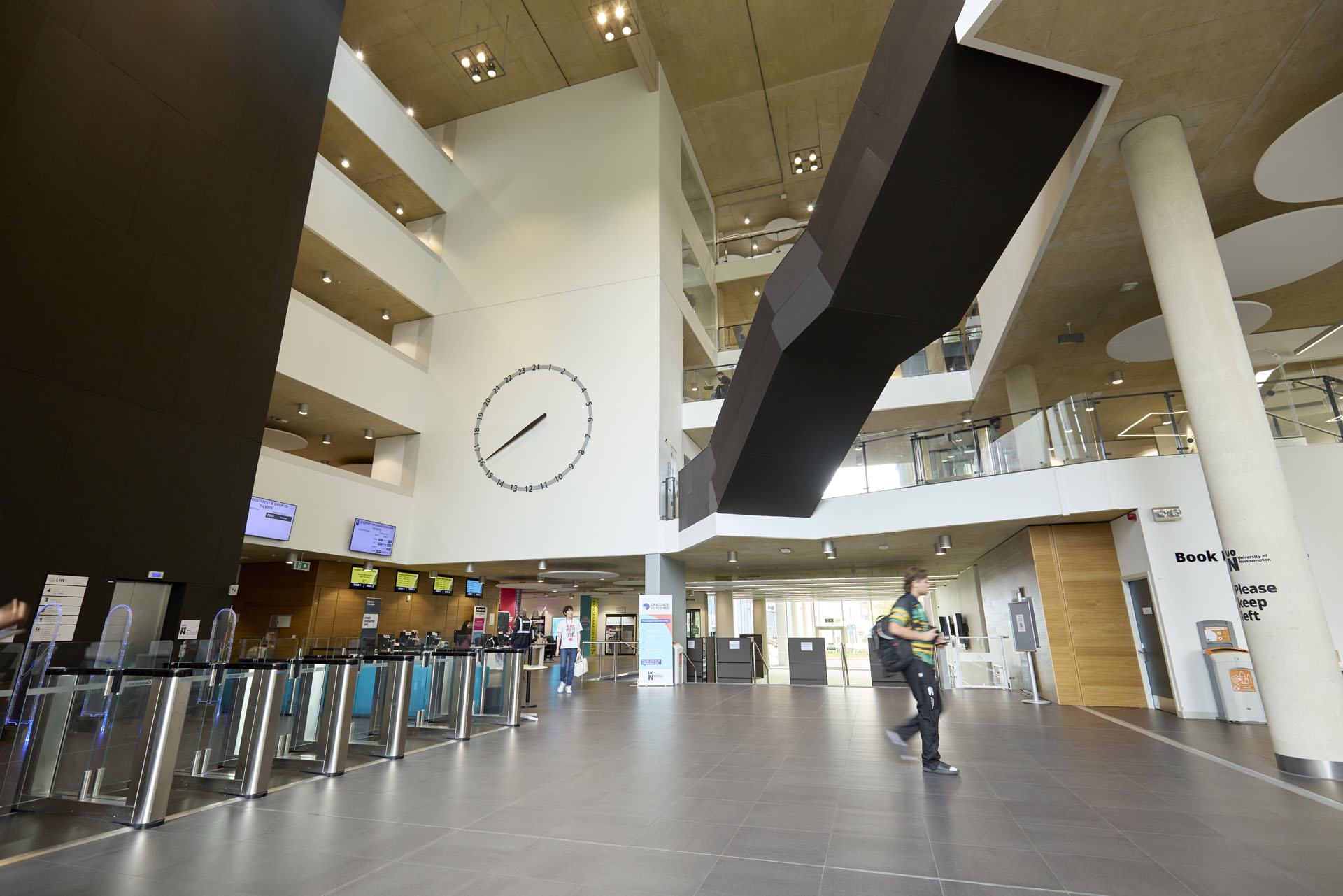
The Learning Hub and Student Information Desk would be a student's first point of call when needing support.

Our library covers three floors of the Learning Hub, with IT rich learning environments, including silent and group study spaces, physical books. Don't forget there are plenty more resources available online!
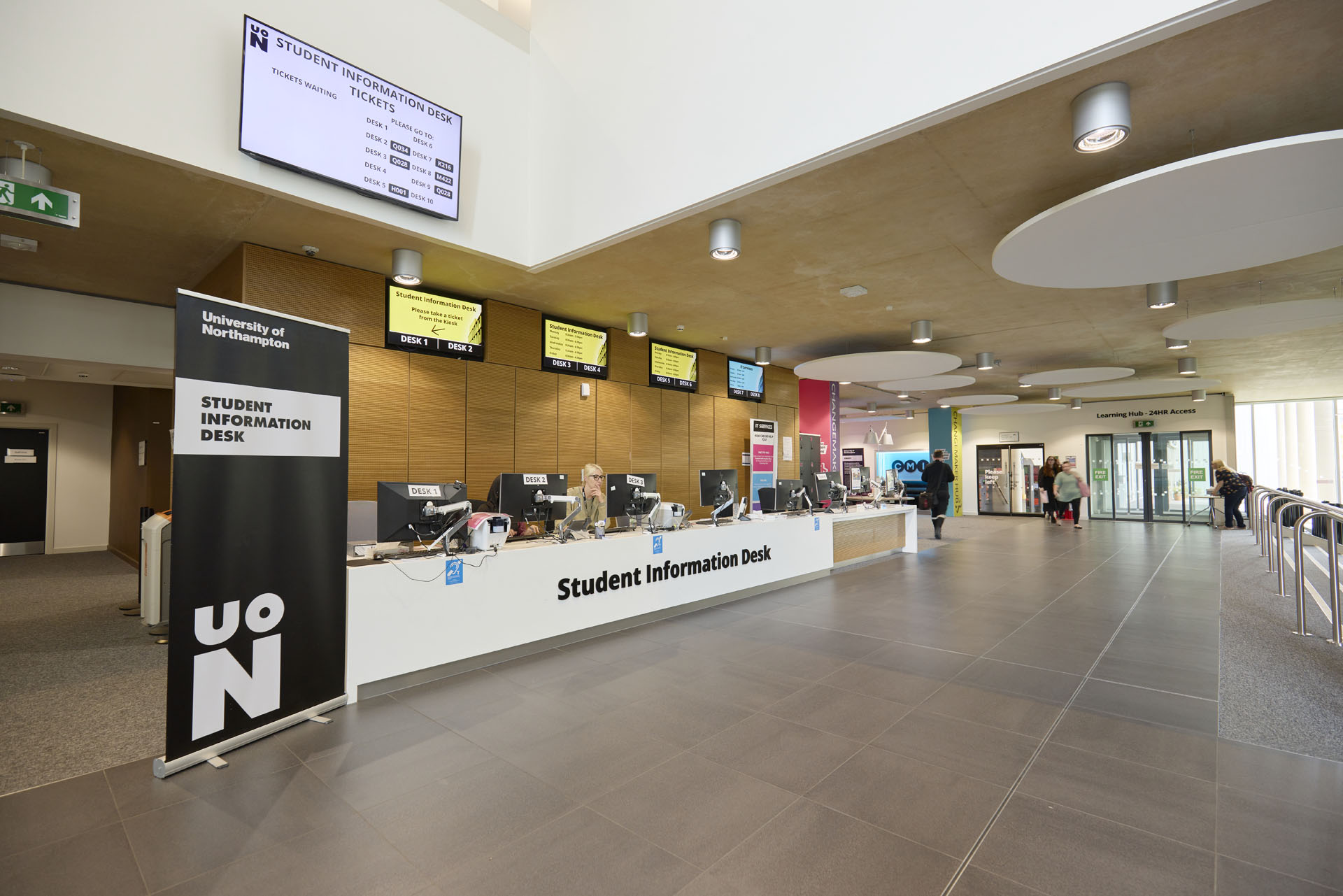
The Student Information Desk is the first place a student should go if they need any help. Here the team can direct you to academic support, mental health support, financial support, IT support, and more.
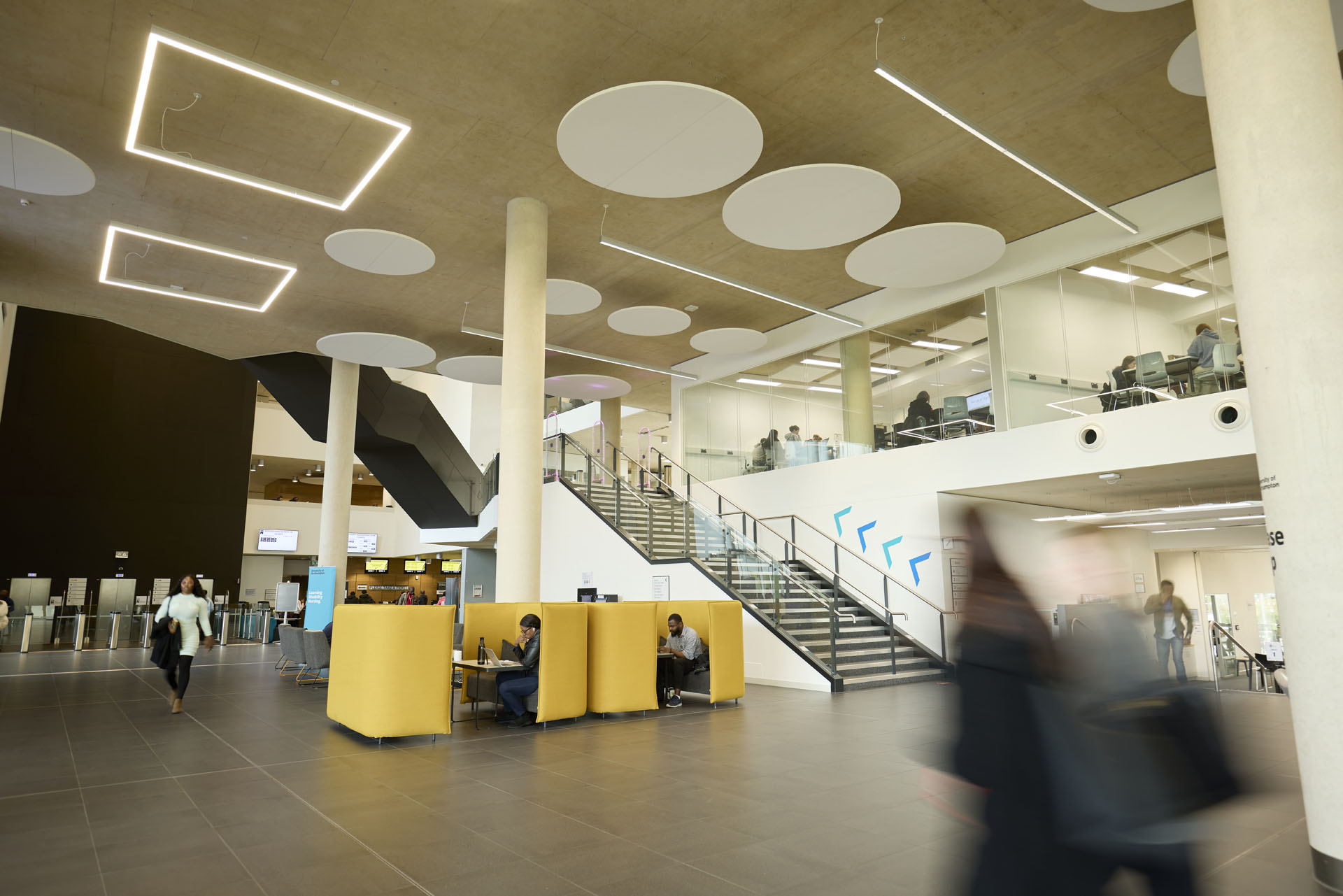
The Learning Hub is where every student will go for library support and classes, as well as food outlets and social events.
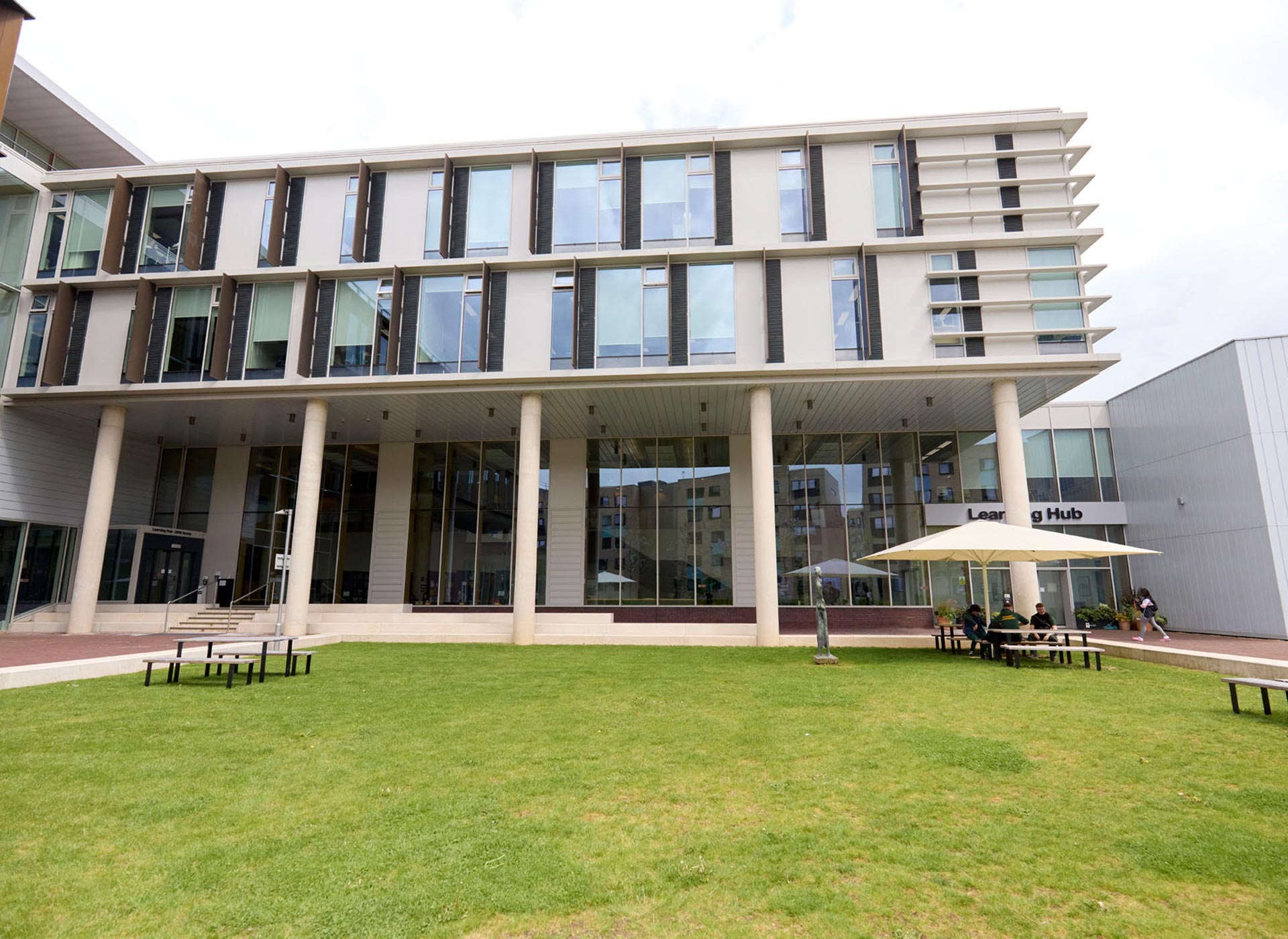
The Learning Hub also has lots of outdoor space for meeting with friends or finding some silent time between classes.

The Learning Hub is the biggest building on campus, home to our Student Information Desk, 24/7 library, teaching spaces, cafes, and more.

The big and spacious modern Senate building has various types of learning spaces, teaching rooms, our Bloomberg suite, Morley Room lecture hall, and cafes.

Waterside campus has everything students needs from: Learning Hub featuring 24/7 library, Creative Hub, on-site shop, restaurant, cafes and food outlets, multi-faith chaplaincy, student village hall, Students' Union and more. With only a short walk over the bridge into the town centre.

The Learning Hub and Student Information Desk would be a student's first point of call when needing support.
Entry Requirements
You need one of the following qualifications:
- BCC at A level
- BTEC level 3 Extended Diploma or National Diploma or Cambridge Technical at DMM
- A kitemarked Access to Higher Education course with 30 credits at Merit or above
- Successful completion of the first year of a relevant Foundation Degree
- Health and Social Care Diploma at Level 3 (advanced level)
- CACHE Diploma achieved at grade B or above
- T Level – Pass (with a C in Core or above).
We welcome applications from students with a mix of A levels and BTEC/Cambridge Technical qualifications.
Please note that we may consider other qualifications not listed above on an individual basis, please contact our Admissions team to discuss these in further detail.
-
All applicants must have:
- English Language and Maths GCSE, or the equivalent, at grade C/4 or above. These must be achieved prior to commencement of the course. (Common equivalents are: Functional skills level 2, Key skills level 2, Adult Literacy/Numeracy Level 2).
The following are essential requirements for all pre-registration nursing programmes:
Applicants must be 18 years old by the 2nd month of commencing pre-registration nursing programmes and all applicants must have 10 years of consecutive education.
All offers of a place on the Adult Nursing University programme are subject to:
- successful Occupational Health Screening,
- satisfactory Disclosure and Barring Service (DBS) report, and
- successful interview by the University.
-
All International and EU students applying for a course with us must meet the following minimum English language requirements:
- IELTS 7.0 with no lower than 7.0 in Reading, Listening and Speaking as well as no lower than 6.5 in Writing for study at the undergraduate level.
For more information on the Nursing and Midwifery Council (NMC) English language entry criteria, please follow the NMC website.
For information regarding English language requirements at the University, please see our IELTS page.
Upcoming Open Days
Open Days give you the best experience and insight to courses, people and facilities that interest you. Make your choice easier and come meet us.
Course Content
-
Our BSc Adult Nursing course has been designed to contribute towards achieving the following United Nations Sustainable Development Goals: SDG3 of Good Health and Wellbeing and SDG5 Gender Equality.
Adult nursing is a rewarding career. As a qualified nurse, you’ll have the opportunity to provide care and help a wide range of adults with their health and wellbeing. Explore if the Adult Nursing profession is for you.
Whatever your ambitions, we’re here to help you to achieve them. We’ll support you in identifying the skills you’re learning during your nursing training, finding your strengths and securing practical experience so that when it comes to applying for jobs or further study you’ll feel confident in standing out from the crowd.
Our aim is to produce safe and effective nurses who embrace the highest standards of professional conduct and ethical practice. You will be introduced to a range of care settings to familiarise you with emerging patterns of care and allow you to choose a specialist area.
By studying our BSc Adult Nursing course you will learn to:
- Work as a professional and be able to safeguard the public and be responsible and accountable for safe person-centred nursing practice.
- Practice in a compassionate respectful way whilst maintaining client dignity.
- Work in partnership with other healthcare professionals in care delivery.
Our University is part of a well-established, professional European network for Nursing and Midwifery. The Florence Network offers opportunities for future health careers and development to staff, academics and students.
List of modules:
Please note the modules shown here relate to the academic year 24/25. The modules relating to the academic year 25/26 will be available from June 2025.
-
-
Interprofessional Education (IPE)
Module code: FHS_IPE20Status: Compulsory
-
Discovering My Identity as a Nurse (20 Credits)
Module code: NPR1027Status: CompulsoryThe purpose of this module is to develop nursing students self awareness, personal and professional resilience and professional identity as a nurse understanding how health science, social and political knowledge, behaviour, vocabulary and skills form their nursing identity. Additionally the module will develop communication skills and understanding of how constructive feedback can be used to evaluate self and effect positive change.
-
Professionalism and Public Protection in Nursing (20 Credits)
Module code: NPR1028Status: CompulsoryThe purpose of this module is to provide the student nurse with underpinning theoretical knowledge of the scientific, legal, professional and personal context of nursing in order to participate in practice safely, ethically and lawfully across all fields of nursing and within a range of clinical practice settings.
-
Exploring the Evidence Base for Nursing (20 Credits)
Module code: NPR1029Status: CompulsoryThe purpose of this module is to equip nursing students with the theoretical foundation, skills and evidenced based knowledge to fully participate in person centred decision making, influence positive lifestyle choices and beginning the students? own professional development.
-
Guided Participation in Nursing Care (60 Credits)
Module code: NPR1031PStatus: CompulsoryThe purpose of this module is to provide the essential clinical learning and simulation and practice experiences a student requires to achieve the NMC proficiencies, enabling progression through to the 2nd part of the programme. Through their electronic portfolio (Pebblepad), signed by their practice supervisor and practice assessor, and moderated by the academic assessor, students will demonstrate achievement of the skills and professional behaviours identified at the first progression point by the Nursing and Midwifery Council. During clinical learning all students will be required to undertake clinical skills via a range of simulation techniques to meet the Achievement of Proficiency in the PAD. These will be signed off by the Module Team/Practice Assessor.
-
Interprofessional Education (IPE)
-
-
Constructing and Developing My Nursing Identity (20 Credits)
Module code: NPR2067Status: CompulsoryThe purpose of this module is to further develop adult, children and young people?s, mental health and learning disability nursing students self-awareness, personal and professional resilience and professional identity as a nurse, deepening understanding of how health science, social and political knowledge, behaviour, vocabulary and skills form their nurse identity and enable them to problem solve within their field of nursing. Additionally the module will further develop communication skills including responding to constructive feedback to evaluate self and effect positive change.
-
Applying Understanding of Nursing Professionalism and Protection of the Public in Nursing (20 Credits)
Module code: NPR2068Status: CompulsoryThe purpose of this module is to build on and further develop adult, children and young people?s, learning disability and mental health student nurses theoretical knowledge, advancing their critical understanding and application of the generic and field specific scientific, legal and professional context of nursing, enabling them to initiate safe practice that is ethical and lawful across all fields of nursing and within a range of clinical practice settings.
-
Interpreting the Evidence Base Influencing Adult Nursing (20 Credits)
Module code: NPR2069Status: CompulsoryThe purpose of this module is to further develop Adult nursing students professional development, theoretical foundation, skills and evidenced based knowledge to initiate person centred decision making, influence positive lifestyle choices, improve health outcomes and understand the appropriateness and quality of care to effect service improvement.
-
Active Participation in Nursing Care (60 Credits)
Module code: NPR2074PStatus: CompulsoryThe purpose of this module is to provide the essential clinical learning and simulation and practice experiences students require to achieve the set of NMC proficiencies enabling progression through to the 3rd part of the programme. Through the electronic portfolio (Pebblepad), signed by their practice supervisor and practice assessor, and moderated by the academic assessor, students will demonstrate achievement of the skills and professional behaviours, relevant to chosen field of nursing, identified at the second progression point by the Nursing and midwifery council. During clinical learning all students will be required to undertake clinical skills via a range of simulation techniques to meet the Achievement of Proficiency in the PAD. These will be signed off by the Module Team/Practice Assessor.
-
Constructing and Developing My Nursing Identity (20 Credits)
-
-
Developing My Nurse Identity Towards Becoming a Registrant (20 Credits)
Module code: NPR3035Status: CompulsoryThe purpose of this module is to further develop adult, children and young people?s, learning disability and mental health nursing students critical self awareness, personal and professional resilience and professional identity as a nurse, deepening understanding of how complex health science, social and political knowledge, behaviour, vocabulary and skills enable collaborative leadership and effect change management within their chosen field. Additionally the module will further develop advanced communication skills including delivering constructive feedback to effect positive change.
-
Becoming a Professional, Responsible, and Accountable Registered Nurse (20 Credits)
Module code: NPR3036Status: CompulsoryThe purpose of this module is to further develop the adult, children and young people's, learning disability and mental health student nurses wide ranging theoretical knowledge, enabling them to critically evaluate, lead, manage and reflect on the application of the scientific, legal and professional context of nursing in their chosen field, ensuring safe, ethical and lawful practice across all fields of nursing and in a range of clinical practice settings.
-
Demonstrating Competence and Confidence in Safe, Effective Administration and Optimization of Medicines and the Health Numeracy Assessment
Module code: NPR3037Status: CompulsoryThe purpose of this module is to ensure adult, children and young people's, learning disability and mental health student nurses knowledge and understanding of pharmacology, the principles of safe effective administration and optimisation of medicines, their proficiency and accuracy when calculating dosages of prescribed medicines and their application of the health numeracy assessment, in the relevant clinical setting is complete, enabling student nurses to join the NMC nursing register in their chosen field, with the ability to progress to a prescribing qualification following registration.
-
Leading and Coordinating Adult Nursing Care (60 Credits)
Module code: NPR3038PStatus: CompulsoryThe purpose of this module is to provide the essential clinical learning through simulation and practice experiences Adult nursing students require to achieve completion of the set of NMC proficiencies enabling registration. Through the electronic portfolio (Pebblepad), signed by their practice supervisor and practice assessor, and moderated by the academic assessor, adult nursing students will demonstrate achievement of the skills and professional behaviours identified by the Nursing and midwifery council. During clinical learning all students will be required to undertake clinical skills via a range of simulation techniques to meet the Achievement of Proficiency in the PAD. These will be signed off by the Module Team/Practice Assessor.
-
Transforming and Innovating Adult Nursing (20 Credits)
Module code: NPR4005Status: CompulsoryThe purpose of this module is to continue the development of Adult nursing students professional development, theoretical evidenced based knowledge and skills to enable them to lead and manage person centred decision making, respectfully influencing positive lifestyle choices to improve health outcomes and exert influence on the appropriateness and quality of care to effect service improvement
-
Developing My Nurse Identity Towards Becoming a Registrant (20 Credits)
-
You will be expected to study a minimum of 2,300 hours theory and 2,300 hours practice across the 3 years. The practical placements that you will take throughout this Adult Nursing course will be in a variety of health, education and social care settings.
The practical experiences in healthcare are gained within private, voluntary and independent sector areas including social care, community trusts and hospitals within Northamptonshire, Buckinghamshire and surrounding areas.
This BSc Hons Adult Nursing Course is compliant with Nursing and Midwifery Council (NMC) requirements.
-
Values Based Recruitment is an approach which attracts and selects students, trainees or employees on the basis that their individual values and behaviours align with the values of the NHS Constitution.
The purpose is to ensure that the future and current NHS workforce is selected against the values of the NHS Constitution, so that we recruit people with the right skills and values to support effective team working in delivering excellent patient care.
-
The University of Northampton is one of only four universities in the country to belong to the ENM. This offers the possibility of a two-week placement in one of around 24 different European countries.
Through this module, you will experience a different health system, culture and life experience and gain an insight into the issues that are faced in an overseas nursing environment. This opportunity is available at a specifically negotiated time during your adult nursing degree, usually within the second or third stage of study. You will have to meet the costs for this module yourself, though these are kept to the minimum possible and places are limited. The two weeks spent overseas for this module count as placement hours as agreed with the NMC.
-
At the University of Northampton, everything we do, from funded trips to paid internships, is to give you everything you need to make a difference when you leave.
If you join our full-time Adult Nursing BSc degree at Northampton, you will receive a laptop when your course begins*. The laptops are built to a bespoke custom specification ideal for use in the seminar room, collaborative group work or studying at home.
Whatever your ambitions, we’re here to help you to achieve them. We’ll support you to identify the skills you’re learning during your course, find your strengths and secure practical experience so that when it comes to applying for jobs or further study you’ll feel confident in standing out from the crowd. We’ve created the Northampton Employment Promise because we are so confident that if you focus on your studies and complete one of our awards you’ll be highly employable by the time you graduate. Putting you in a great position to secure employment or continue your studies.
To check out the full list of perks, visit our Student Perks page or dedicated International Perks page.
* UK fee payers only (see Terms and Conditions for further details)
-
How is the BSc Adult Nursing degree assessed?
All assessment is marked in accordance with the University’s regulations. There are a variety of assessments throughout the study, for example the students have simulations to work through, reflective accounts to write, essays, presentations, drug calculations exam and more. BSc Nursing students are also assessed in practice on the skills they are learning.
We supports the values stated in the NHS Constitution and these values are utilised in our recruitment and selection processes. Please visit the Health Education England website for more details.
Our external examiners are registered nurses who also hold recordable teaching qualifications approved by the Nursing and Midwifery Council (NMC).
How will I practise my skills in nursing labs?
The nursing skills labs, based at our Waterside campus, are used throughout the Adult Nursing course to enhance learning in the clinical settings. The Nursing labs have a purpose-built clinical ward where students can learn and develop their clinical skills through practice-based, hands-on education. You will practise scenarios from a real-life hospital ward in a realistic, yet safe clinical environment.
The fully interactive VR (Virtual Reality) system and mannequins allow students to ‘treat’ people in a variety of nursing settings, giving them ‘as close to real-life as possible’ training. This includes actual conversations with the characters in the scenario and gives clinical feedback that is matched to the student’s learning objectives.
How will I be taught on the degree in adult nursing?
From September 2019 we have been offering an exciting new curriculum based on The Nursing and Midwifery standards for education 2018. The curriculum is innovative utilising an active blend learning approach and an extensive range of support. The curriculum offers placement learning opportunities throughout Northamptonshire and beyond, including Europe and International.
Worried about student finance?
Get all the info you need ahead of time, before you can apply for funding in Spring on our fees and funding pages.
Fees and Funding
2025/26 Tuition Fees
- UK – Full Time: £9,535
- International – Full Time: £18,200
Fees quoted relate to study in the Academic Year 2025/26 only and may be subject to inflationary increases in future years. UON will adjust UK fees annually in line with Government Policy.
-
Potential additional costs include:
- travel costs to and from placements, parking and extra costs associated with placements, may be incurred throughout your studies depending on where you are based.
- optional membership of Union
- optional two week European placement (flights, accommodation, living expenses)
- first set of clinical uniform is free but additional uniforms have to be purchased by the student
- black leather shoes, black socks.
-
Students, studying nursing, midwifery and many of the allied health professions courses from September 2020, may be eligible for a payment of at least £5,000 a year which they will not need to pay back. They may be able to apply for Financial support at the university through the NHS Learning Support Fund (NHS LSF) which offers eligible students additional support while studying for their degree. This is in addition to the Student Loan from the Student Loans Company.
Financial contribution towards your travel, and expenses in relation to your practice learning opportunities, may be available to you from the NHS Learning Support Fund. Details, including eligibility criteria, can be found on the NHS website.
The information provided above is correct for the academic year 2025/26 but please check the NHS LSF website for full details, any changes and updates.
For more information about possible funding options, please visit our Fees and Funding pages.
-
Fees for the BSc in Adult Nursing relate to study in the Academic Year 24/25 only and may be subject to inflationary increases in future years.
- UK – Full Time: £9,250
- International – Full Time: £17,700
Staff

Senior Lecturer in Specialist Community Public Health
Faculty of Health, Education and Society
Patricia Jeremiah

Senior Lecturer in Practice Development - Nursing
Faculty of Health, Education and Society
Clare Bramer

Senior Lecturer in Practice Development - Nursing
Faculty of Health, Education and Society
Hannah Cannon

Senior Lecturer - Return to Practice/ Int Healthcare Progs
Faculty of Health, Education and Society
Mary Kitson
Careers and Employability
Studying for our BSc Adult Nursing degree will allow you to pursue a wide range of professional careers in health and social care and research. Some of the roles available to you in the community and acute services after qualifying include: district nurse, practice nurse, prison nurse, community matron, occupational health nurse, health visitor, nurse consultant, theatre nurse, nurse educator, nurse researcher and manager.
You can explore a range of careers and opportunities available within healthcare on the NHS Health Career website or you could take the NHS Career quiz to discover what professions best suit you.
Within the NHS, an Adult Nursing salary is on average between £28,000 to £43,000 a year, according to GOV.UK, based on their skills, abilities, experience and job responsibilities. To find out current job opportunities and salaries, visit Find a job service
Master’s Opportunities
Our Master’s courses are a great way to enhance the skills you have already learnt. Benefit from our 20% alumni discount on postgraduate fees.
Successful completion of this course could lead on to one of our postgraduate programmes: PGDip Specialist Community Public Health Nursing, MSc Specialist Community Public Health Nursing (Top-Up), MSc Public Health, MSc Advanced Clinical Practice.
At the University of Northampton, we offer a range of short courses and continuing professional development (CPD) programmes. These will enable you to learn new skills, progress into specialisms or take on new responsibilities.
Facilities
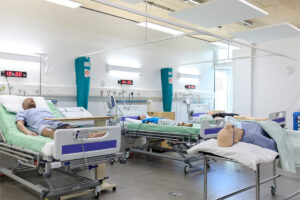
A realistic, acute clinical environment with mannequins, hospital beds, medical gases systems, clinical equipment, and more.
Clinical Skills Simulation Lab

The Learning Hub is at the heart of the campus and home to the student information desk.
Learning Hub

A realistic, acute clinical environment with mannequins, hospital beds, medical gases systems, clinical equipment, and more.
Clinical Skills Simulation Lab

The Learning Hub is at the heart of the campus and home to the student information desk.
Learning Hub

A realistic, acute clinical environment with mannequins, hospital beds, medical gases systems, clinical equipment, and more.
Clinical Skills Simulation Lab

The Learning Hub is at the heart of the campus and home to the student information desk.
Learning Hub

A realistic, acute clinical environment with mannequins, hospital beds, medical gases systems, clinical equipment, and more.
Clinical Skills Simulation Lab
Related Courses
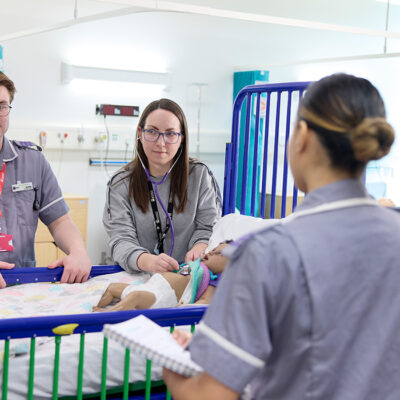
Children and Young People’s Nursing BSc (Hons)
Children and Young People’s Nursing will provide you with the capability to cope with a demanding...
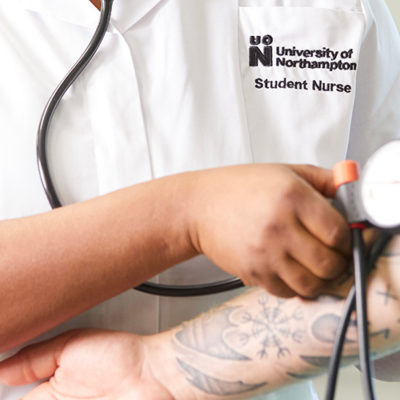
Nursing Associate FdSc
This is a 2 year full time FdSc with a 50/50 split between theory and practice...
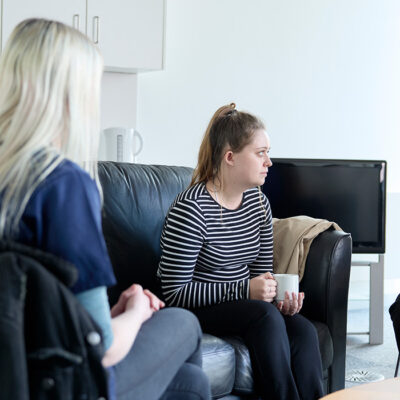
Mental Health Nursing BSc (Hons)
See the service from the patient’s perspective and learn how you can make positive changes through...
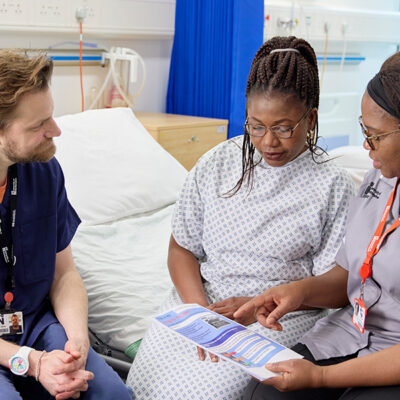
Learning Disability Nursing BSc (Hons)
Our course course will develop your understanding of the needs of people with learning disabilities to...
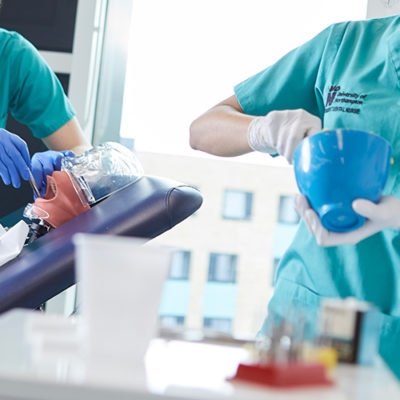
Dental Nursing FdSc
Our Dental Nursing course provides you with a wide range of academic skills and work related...

Health and Social Care Practice BA (Hons)
A global perspective of current and emerging health and social care issues and approaches through theory...






